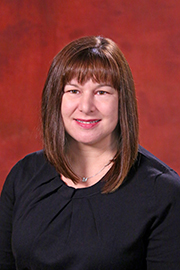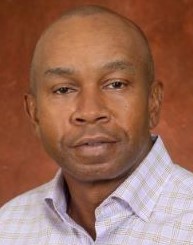FOR IMMEDIATE RELEASE
Contact: Audrey Post, audrey.post@med.fsu.edu
850-645-9428
September 2022
NIH FUNDS RESEARCH IN EARLY-STAGE BEHAVIORAL INTERVENTIONS TO PREVENT PREMATURE DEATHS
Sept. Sylvie Naar is on a mission to train the next generation of researchers in methods for developing behavioral interventions, which could mean the difference between life and death for a lot of people.
That’s not hyperbole: The National Cancer Institute, a division of the National Institutes of Health (NIH), is supporting that goal with a four-year grant totaling almost $1 million.
Naar is director of the Florida State University Center for Translational Behavioral Science, which is focused on translating research findings into patient treatment. She is the principal investigator on the grant project, and she’s passionate about the topic.
“An estimated 40% of premature deaths are attributable to preventable behavioral factors such as smoking, alcohol use, sexual risk, poor diet, and sedentary lifestyle, which have been linked to chronic illnesses such as cancer, cardiovascular disease, and diabetes,” said Naar, a distinguished and endowed professor in the Department of Behavioral Sciences and Social Medicine at FSU’s College of Medicine.
“Accelerating the development and optimization of treatments to improve health behaviors is an urgent public health priority,” she said.
Until now, much of the research has focused on traditional clinical trial design. Naar will create a course that teaches rigorous and replicable new methods for early-stage behavioral intervention for cancer prevention and treatment.
“The past decade has seen significant advances in innovative methodologies to translate into new and more potent behavioral treatments,” she said. “The use of a variety of methods to answer focused questions promotes creativity, prevents premature abandonment or premature efficacy testing of a method, and encourages optimization.”
Jeffrey Joyce, senior associate dean for research and graduate programs at the College of Medicine, said the need for training in methods for rigorous early-stage behavioral intervention research is critical to truly impact chronic diseases.
“The importance of the training cannot be overstated and Dr. Naar has been at the forefront of the science of behavioral interventions,” he said. “This will have a lasting impact on the future of behavioral research and implementation.”
Researchers will use the ORBIT model for behavioral treatment development – a flexible and progressive process that uses pre-specified, clinically significant milestones for forward movement, and a return to earlier stages for refinement and optimization if that is what’s needed.
The ORBIT model was originally used to study obesity in South Carolina teens, hence the acronym for Obesity-Related Behavioral Intervention Trials. Naar developed the model with the NIH and was part of the obesity research team, the team that researched expanding its use for treatment of chronic disease and illness, and she has been a co-author on many research projects using the method.
Each year of this study, 25 fellows from multiple disciplines will be selected for a six-month course that teaches a variety of methods and skill-enhancement techniques to encourage more effective collaboration across the research spectrum. Fellows will include emerging researchers in behavioral interventions and established researchers looking to expand their focus.
The fellows will have substantial minority representation to ensure the project team is training researchers reflective of medically underserved populations to improve health disparities. The course will be a combination of in-person workshops and bi-monthly webinars, and frequent evaluation will contribute to ongoing curriculum development and refinement.
“The hope is that this could turn into an annual conference; a self-sustaining entity,” Naar said. “I want to train the next generation of scientists in this domain. That’s my thing.”



